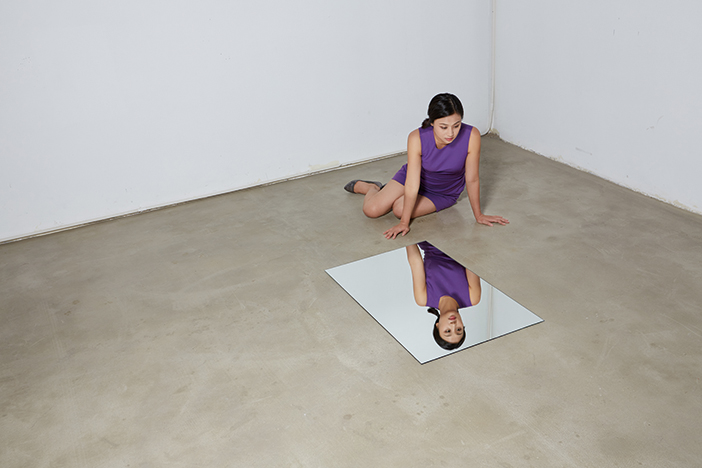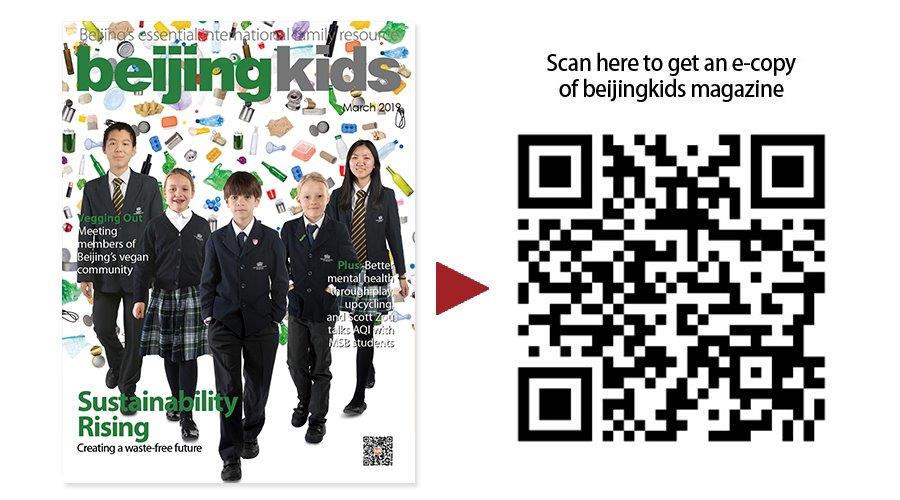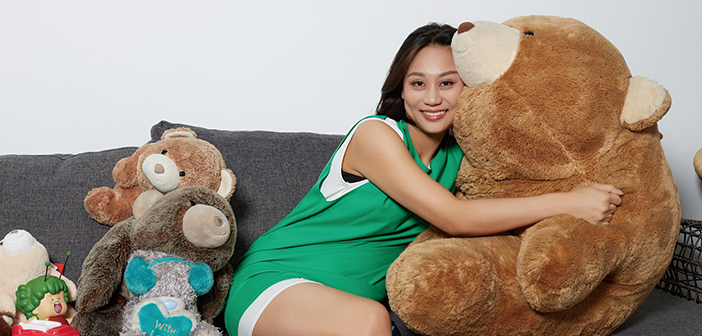Read the first part of this feature here.
When my children cry
The lifesaving reflection through playing with my bears, was that I was wearing a mask for the 30 odd years prior to the depression. The assumption that I needed to be strong, or that crying meant I would be weak or a failure, meant I denied the unpleasant emotions of hurt, pain, loneliness, or disappointment for fear that others would judge me or reject me.
Denying our real emotions has severe health consequences, especially for sufferers of depression, as it is only after acknowledging we’re NOT “fine” that we seek help and can recover. I was a prime example.
As a mother now, emotional awareness is our priority. We do not tell our children, “it’s okay, don’t cry” when they cry. Instead, we acknowledge they are crying for a reason. If they fell over and cried, to them it is real. Granted, our kids seem to see falling over as fun, whether they cry or not, we describe the facts to them: “You fell over”. We do not dictate how they should feel about it, or whether it is “okay.” If they cry, we say, “You are crying, maybe because it hurts after your fall?”
I printed a poster from the Internet of little girls’ different facial expression. Since maybe the age of 1, we have been talking to our daughter about emotions, and giving her the vocabulary to name how she feels. Slowly, even before she could talk, when she was upset, she would run to the poster, and point to the little girl who was crying. Sometimes she pointed to the girl who was laughing when she was happy. We read them story books about emotions.
A lot of people I have come across tend to throw unpleasant emotions under the carpet, as if then they will not be affected by the unpleasantness. Usually, we hear “don’t feel like that, it will be okay” or the likes. What this does is only to bottle up the emotions further, and trust me, one day, they will explode.
As young as 4 years and 15 months, my daughter and son will not understand the concept of mental health just yet. But I can do my part in helping them identify how they feel, and not belittling their feelings. We also do not label the emotions as “positive” or “negative” because emotions are, simply, emotions. One may find some unpleasant to experience, but it does not pigeon-hole a feeling as negative, as if it is wrong to feel so. As they grow emotionally aware, I hope they will also see that emotional wellness is tied in with mental wellness. And just as physical health sometimes breaks down, mental health does too, and there is no shame in the mood disorders such as anxiety, bipolar, depression, or other states of burnout and melancholy states.
We normalize ALL emotions. They are ALL real.

A mindset change
The pressure is real too. Public examinations are real. Competition is real. One cannot change the structure over night. But we as parents, can change ourselves, the way we think, the way we parent, and our states of being.
I’ve taken my kids to an indoor playground since they were young. I chose carefully because there is lots of supply, but not everyone understands childhood development. I liked the concept espoused at this place. The hardware is perfect – safe, clean, innovative, and child-centered, plus there were none of those squeaky toys that make lots of noise. The staff are warm and loving.
The culprits are the caregivers.
All the child wants, is to explore. He picks up a toy and tries to sit on it. The grandma snatches it from the child, and yells, “You cannot play with it that way.” Why not?
Another child is waddling around, but all he takes are three small steps and he has no room to go further – his mother on one side, and helper on the other side, are shielding him from unlikely, invisible danger on a padded floor with no sharp objects.
There is no space for the children. Parents hovering for no apparent reason other than a defense against their own anxieties as parents. The tragic thing, is that the parents do not seem to be aware of this, and channel all their anxieties on to their unassuming, resilient children.
It is a challenge for me to be at the indoor playground, watching the adult-child interaction. There are so many things I wish I could tell the caregivers, and I also know that to educate and change the mindsets of all the mothers, fathers, grandmothers, grandfathers, and ayis, seems like an insurmountable task. I see many parents going to “Effective Parenting” classes and the like, to learn how to communicate with their children – I wonder how effective those classes are if the adult cannot communicate with himself or herself and have some level of self-awareness first.
Likewise, there is a limitless supply of early childhood education centers, play centers, interest classes, and child-friendly restaurants with great play spaces. Yet, I wonder how many of them are really dedicated in their philosophies, helping to change the way the adults think and parent, or is it simply a business venture that looks brilliant and colorful from the outside?
We seem to look for solutions and advice externally, as if paying for enough parenting classes and early childhood playgroups would then make us superparents with superkids. It’s not which playground or expensive club or the side of the street that will make our kids emotionally intelligent. It is the mindset – of the adults, not the children – that needs shifting.
First and foremost, let them play, in whatever way they can.
Playfulness is highly correlated to innovation, relaxation, and stress management. When we play, our brain excretes hormones and rewires neural pathways for learning, stimulating creativity, and catalyzing chemicals to maintain a happy state. This is the reason why playing with the bears helped me recover. This is the reason why playing is crucial to learning and development. And this is why playing is highly correlated with mental resilience and stress management. For those parents who are worried about examination results, research has also shown that playful teenagers score higher in exams. Adults who are playful are found to live ten years longer than average.
Give children a chance. Let them play, freely. If they want to sit on a toy, let them sit on a toy. There is no “supposed” way of playing.
Kids are not trophies
My growing-up story seems to be repeated, day in and day out. I meet executives with whom I work, and they tell me their similar experience – some of them still live under the shadow of being their parents’ trophies for comparisons between neighbors, and find no time to breathe.
There is nothing inherently wrong with extracurricular classes. What is worth some self-reflection on the part of the parents is why they put the children through them. Is it to keep up with the Wangs? Is it because the parents fear they will miss out on something? Is it because the grandparents said so? Or is it because the advertising is done too well?
There are thousands of theories out there: RIE, Reggio Emilia, Montessori, Waldorf, Forest schools, traditional educational structure, or the Finnish system that does not require children to start writing till they are 6 or 7 years old. Collect your own data, do your own reading, explore a cross-section of information – and then make up your OWN mind.
Choose the kindergarten, playgroups, and social groups with care. Find the teachers who respect children’s innate abilities to play. I have distanced myself from some other parents because of how they reacted to “conflict” between my children and theirs. There are lots of different people, and even if you are not a leading educational expert, you can choose who to follow. Plus, not every expert’s ideas are a right fit for your family, your child, or your style of living.
Many parents and ayis I meet at the indoor playground seem amazed that my children can put their shoes on and off themselves, throw rubbish into the bin, drink from a normal cup, and put toys back to their shelves. I smile, nod, and thank them. Inside, I am thinking, “Well, did you ever give them a chance to try on their own, or did grandma hold your child while the ayi takes their shoes off, and then grandpa cleans up after them?” Is it really that the child is not “independent”, or just that we deprived them of the capacities?
There is also something else to be recognized other than achievements. One time, when I was so happy bringing home my mathematics test because my score improved from 70 to 85 out of 100, my mother took a brief glance and then asked me, “Why still not 100/100?” I could only imagine how dismayed I felt. My effort was not valued – only the outcome. My Australian husband once told me that when he was at school, there were always two scores, one for the content, and one for effort, and his parents only cared about the effort score and whether he tried his best. Today, he is not as defined by outcome as I am. He can enjoy his journeys.
Congratulate your child for trying his or her best, and guide their persistence. Otherwise, they end up like me, focused only on achievements and goal, and knowing nothing other than achieving one goal after the next one.
Bearapy – Adults need to play too!
Depression is not weak. It is like a cold, but one of the mind. Sometimes one has a small cold with light sniffles, managing to go to work and daily activities. Sometimes one has a nasty cold with fever and aches and is bedridden. Some have used the metaphor of a black dog following you around. Many people in the world live day to day with mild depression, and go about their day, take care of children, and go to work. More severe cases are debilitating.
The World Health Organization classifies depression a global disease burden, responsible for more deaths than heart diseases or cancer. 350+ million people suffer from it every day. Companies worldwide lose more than USD 1 trillion annually to absenteeism, medical insurance, and low productivity from employees with depression. And yet many are in denial because we think depression makes us lose face, or is simply seeking for attention.
It is very real. We are taught from a young age not to cry, or not to lament. Subconsciously, we are taught to hide the unpleasant emotions, to the extent we don’t even feel them. My depression did not happen overnight. It happened with an accumulation of denial of emotions. I also could not ask for help because I simply could not articulate how I was feeling.
Seeing these issues, I decided to combine my personal experience with my knowledge and corporate experience. I ventured to study organizational behaviour, researching the psychology of playfulness and its links to everyday creativity and corporate culture. Then I established my company, Bearapy, with the mission to reduce workplace burnout and raise mental health awareness through the psychology of play. I conduct PLAYshops and mental health training for companies, executives, and the public.
I would like adults to be in touch with themselves, to stop following blindly, to realize the importance of mental health, and to find their inner playfulness once again.
I would like organizations to think about their executives’ mental wellbeing – not just piecemeal yoga and meditation classes, but to transcend corporate culture in support structure, hiring, and even interior design and workspace personalization.
And, I would like parents to stop overemphasizing the focus on their innocent children, who only need to be given physical and mental space to try things on their own, but instead to recognize that the real point of contention are the parents themselves.
Stress in the City
I get it. Life is not always a smooth ride. After my major depressive episode years ago, depression and anxiety came to visit again every now and then – when I felt lost for my career, after having my first child, when writing my newly-published book, “Stress In the City: Playing My Way Out of Depression”, after having my second child, when building a business becomes a struggle… Sometimes, I feel I burn myself out again, overwhelming myself with self-imposed pressures.
The difference is, I now recognize the signs. I know when that happens, and I can find the support I need to feel whole again.
I do not reject depression – in fact, I am most creative in my writing in that state. Rather, I take depression as a message: what is going on in my life right now that needs changing? Am I stuck in old ways again? Or do I just need to spend some more time playing?
Don’t let your kids end up the way I did. The very first step is increasing our own self-awareness in a no-nonsense way.
About the Author: Enoch Li
Based in Beijing, Enoch is a social entrepreneur and founded BEARAPY. The mission is to reduce burnout and mental health issues in the community and workplace through helping adults access their inner playfulness. She works with companies to build mental wellness into their company culture and to strengthen executives’ mental resilience. Prior, she had corporate and management experience in the banking and finance sector. Her work is widely recognized; she was awarded the Social Contributor of the Year 2018 Award by the International Professional Women’s Society in China.
Enoch is also a published writer and author, and her newest book, Stress In the City: Playing My Way Out of Depression, launched in the UK and US last summer.
She holds a Masters in Law (Hons) from the University of London, an Executive Masters in Coaching and Consulting for Change (Distinction) from INSEAD, and has completed Level I of Play Therapy Certificate by the Canadian Association for Play Therapy. Enoch is certified in multiple Advanced Small Group Trainings in the Tavistock Style from A.K. Rice Institute for the Study of Social Systems.
Resources
Stress In the City: Playing My Way Out of Depression is available on Amazon, DangDang, JD, Duokan, Baidu, and other online websites.
Web
– Blog: NochNoch.com
– Website: Bearapy.me
– Official WeChat account: BearapyBearapy

This article appeared in the beijingkids March 2019 Sustainability issue.
Photos: Oufeivision








1 Comment
Having read this I thought it was very informative.
I appreciate you taking the time and energy to put this short article together.
I once again find myself personally spending way too much time both reading and posting comments.
But so what, it was still worthwhile!